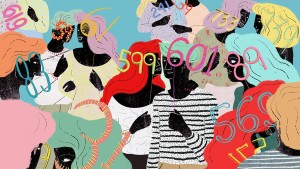
15 March 2016 – Two mathematicians have uncovered a simple, previously unnoticed property of prime numbers — those numbers that are divisible only by 1 and themselves. Prime numbers, it seems, have decided preferences about the final digits of the primes that immediately follow them. Among the first billion prime numbers, for instance, a prime ending in 9 is almost 65 percent more likely to be followed by a prime ending in 1 than another prime ending in 9. In a paper posted online today, Kannan Soundararajan and Robert Lemke Oliver of Stanford University present both numerical and theoretical evidence that prime numbers repel other would-be primes that end in the same digit, and have varied predilections for being followed by primes ending in the other possible final digits. “We’ve been studying primes for a long time, and no one spotted this before,” said Andrew Granville, a number theorist at the University of Montreal and University College London. “It’s crazy.”
For the full article click here.
For the link to the full academic paper click here.
Bill Cusper, a math maven friend at CalTech, told me:
I wonder if this has anything to do with Twin primes. If a prime ends in 9, then its twin will end in 1, and so we should expect primes ending in 9 to more often be followed by primes ending in 1. The number of twin primes is believed to be infinite, but they get more sparse as you go towards infinity (proportional to 1/(ln(n)^2)), even faster than primes (proportional to 1/ln(n)), so if they are responsible for the bias, then the bias should diminish as you go up.
All I can say is: stop anthropomorphizing prime numbers. They hate that!